Graphic:
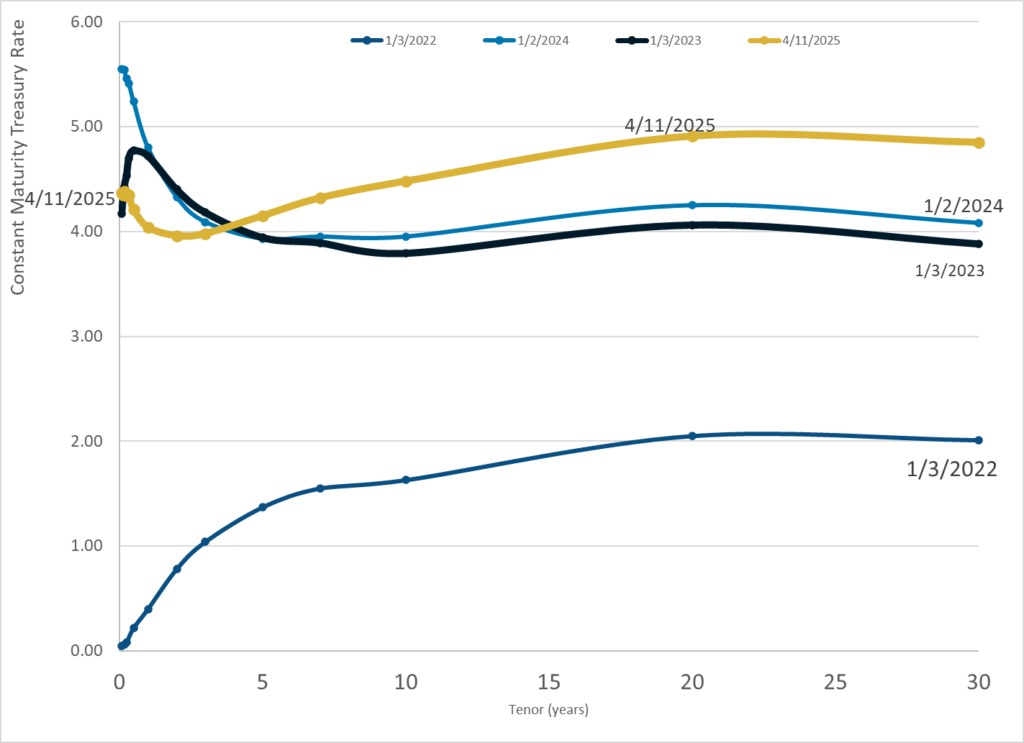
Publication Date: 11 Apr 2025
Publication Site: Treasury Dept
All about risk
Graphic:

Publication Date: 11 Apr 2025
Publication Site: Treasury Dept
Graphic:
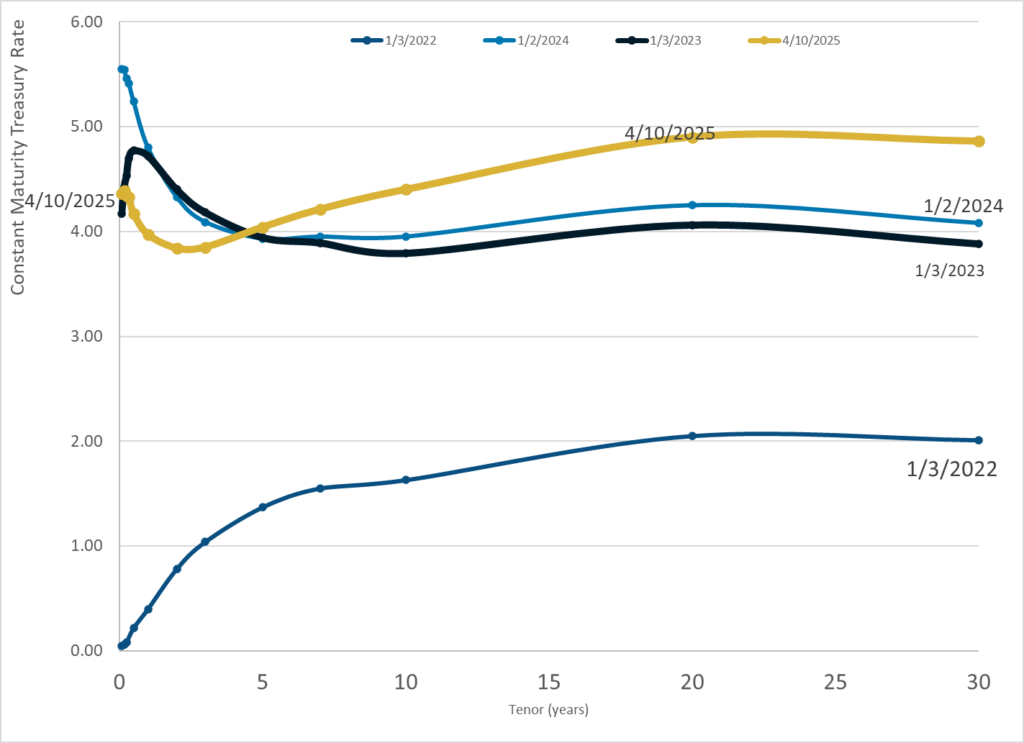
Publication Date: 10 Apr 2025
Publication Site: Treasury Dept
Graphic:
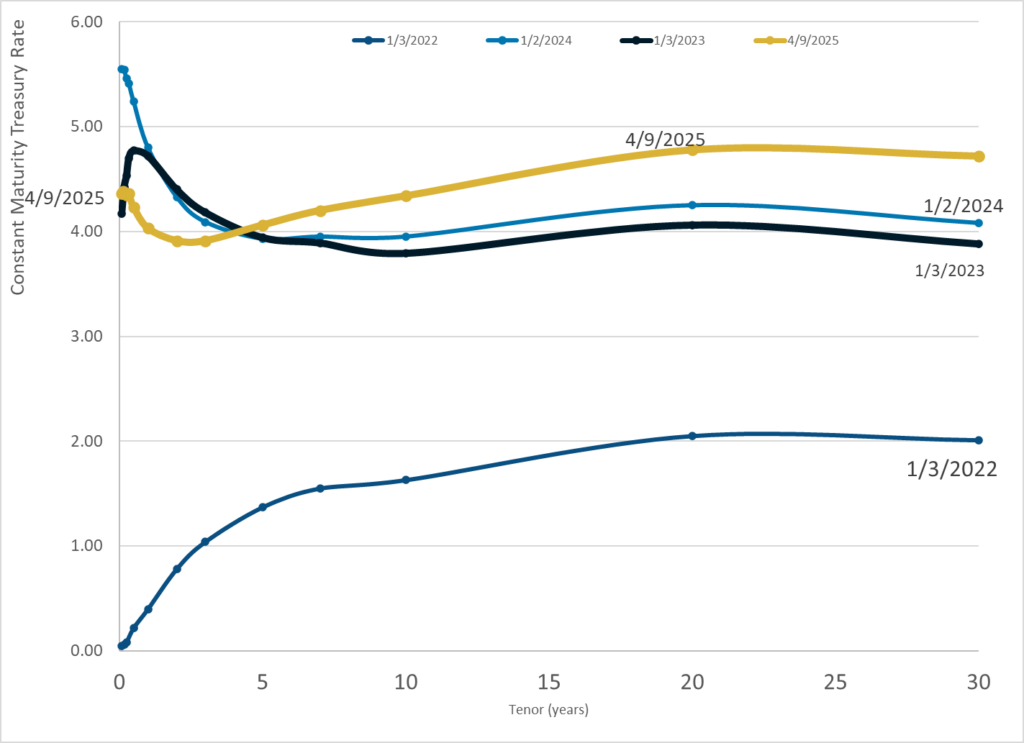
Publication Date: 9 Apr 2025
Publication Site: Treasury Dept
Graphic:
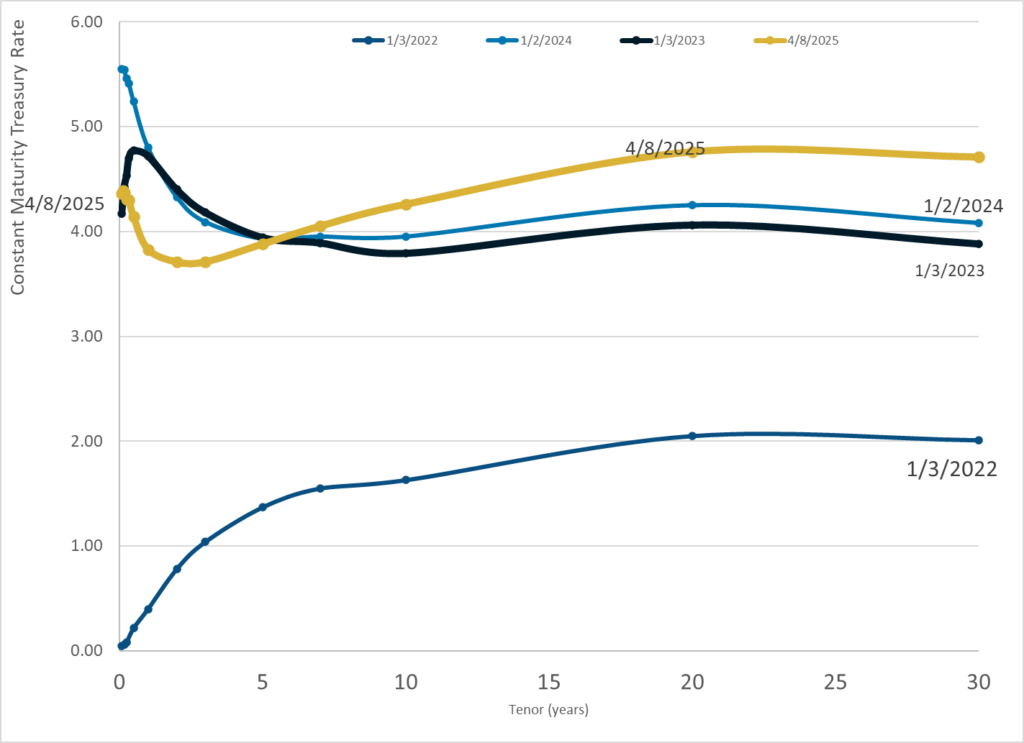
Publication Date: 8 Apr 2025
Publication Site: Treasury Dept
Graphic:
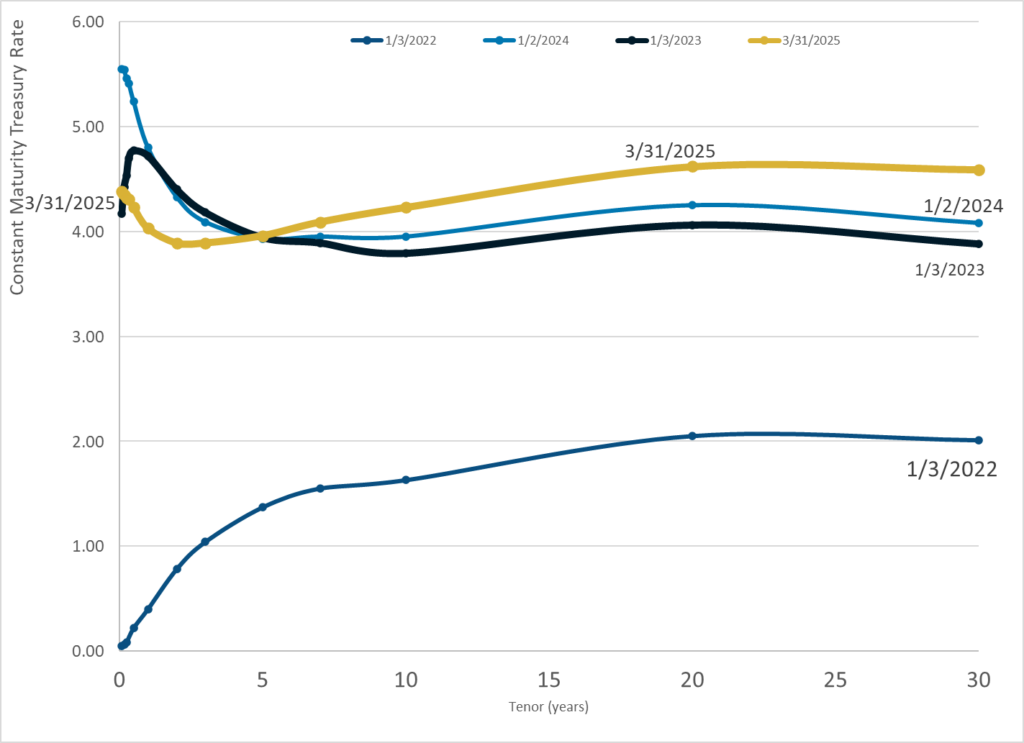
Publication Date: 31 Mar 2025
Publication Site: Treasury Dept
Graphic:

Publication Date: 21 Feb 2025
Publication Site: Treasury Department
Graphic:

Publication Date: 19 Feb 2025
Publication Site: Treasury Department
Graphic:

Excerpt:
Effective with the inaugural auction of the new benchmark 6-week Treasury bill on Tuesday, February 18, 2025, Treasury plans to include 6-week bill prices in its input data set for the daily yield curve. Treasury also plans to add a 1.5-month CMT to the Daily Treasury Par Yield Curve Rates and 6-week bill rates to the Daily Treasury Bill Rates that it publishes.
Changes to the published tables and data files to accommodate the additional rates will appear beginning in the evening on February 14, 2025.
Publication Date: 18 Feb 2025
Publication Site: Treasury Dept
Graphic:

Publication Date: 13 Feb 2025
Publication Site: Treasury Dept
Graphic:
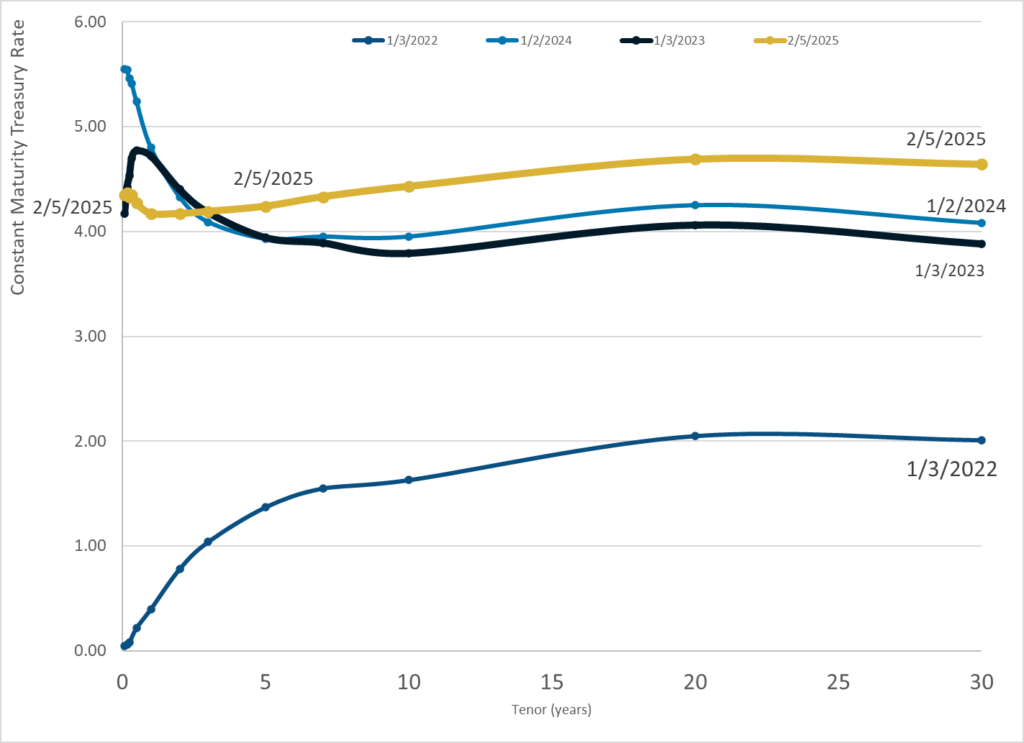
Publication Date: 5 Feb 2025
Publication Site: Treasury Dept
Graphic:

Publication Date: 4 Feb 2025
Publication Site: Treasury Dept
Graphic:

Publication Date: 31 Jan 2025
Publication Site: Treasury Dept